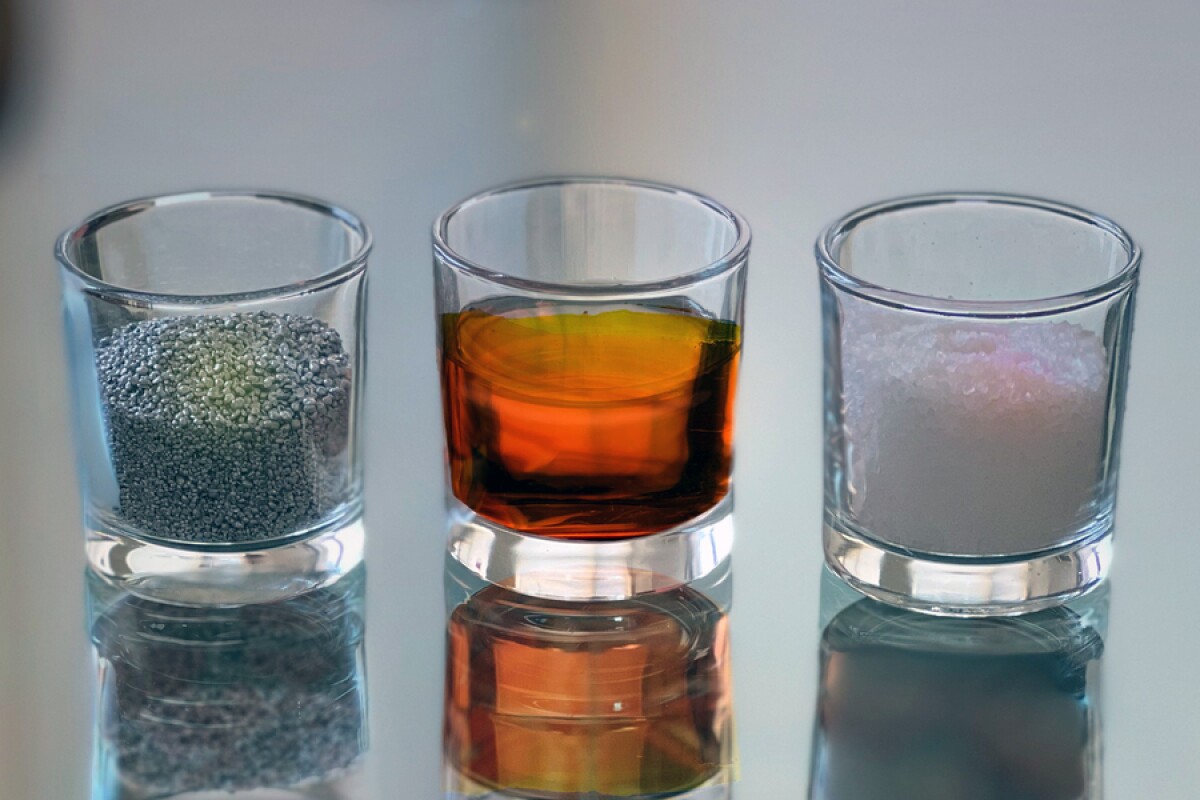
This is very interesting. why are we not already doing just this? what real advantage do we have with lithium?
What other matetrials also show promise?
What has become clear is that all our technology needs access to battery support simply to make power distribution naturally efficient. We really need super batteries or at least the best we can make/. This work has not ended.
Battery made of aluminum, sulfur and salt proves fast, safe and low-cost
August 24, 2022
The three main ingredients in the new battery, from left: aluminum, sulfur and salt
Rebecca Miller
https://newatlas.com/energy/aluminum-sulfur-salt-battery-fast-safe-low-cost/?
Engineers at MIT have developed a new battery design using common materials – aluminum, sulfur and salt. Not only is the battery low-cost, but it’s resistant to fire and failures, and can be charged very fast, which could make it useful for powering a home or charging electric vehicles.
Lithium-ion batteries have dominated the field for the last few decades, thanks to their reliability and high energy density. However, lithium is becoming scarcer and more expensive, and the cells can be hazardous, exploding or bursting into flames if damaged or improperly used. Cheaper, safer alternatives are needed, especially as the world transitions towards renewable energy and electric vehicles.
So the MIT team set out to design a new type of battery out of readily available, inexpensive materials. After a search and some trial and error, they settled on aluminum for one electrode and sulfur for the other, topped off with an electrolyte of molten chloro-aluminate salt. Not only are all of these ingredients cheap and common, but they’re not flammable, so there’s no risk of fire or explosion.
In tests, the team demonstrated that the new battery cells can withstand hundreds of charge cycles, and charge very quickly – in some experiments, less than a minute. The cells would cost just one sixth of the price of a similar-sized lithium-ion cell.
They can not only operate at high temperatures of up to 200 °C (392 °F) but they actually work better when hotter – at 110 °C (230 °F), the batteries charged 25 times faster than they did at 25 °C (77 °F). Importantly, the researchers say the battery doesn’t need any external energy to reach this elevated temperature – its usual cycle of charging and discharging is enough to keep it that warm.
Although the type of salt in the electrolyte was chosen because it has a low melting point, it coincidentally has another benefit – it naturally prevents the formation of dendrites. These metal tendrils, which gradually grow between the two electrodes until they cause a short circuit, are a major hurdle for batteries, particularly lithium-ion cells.
The team says that this battery design would be best suited to the scale of a few dozen kilowatt-hours, like powering an individual home from renewable sources. They could also be useful as charging stations for electric vehicles, thanks to their rapid charging. Other types of batteries, such as a recent design using molten salt electrolyte and aluminum and nickel electrodes, could work better at grid scale.
The patents for the aluminum-sulfur batteries have been licensed to a spinoff company called Avanti, co-founded by one of the authors of the study describing the design. The first order of business is to build it at scale, and run it through stress tests.
No comments:
Post a Comment